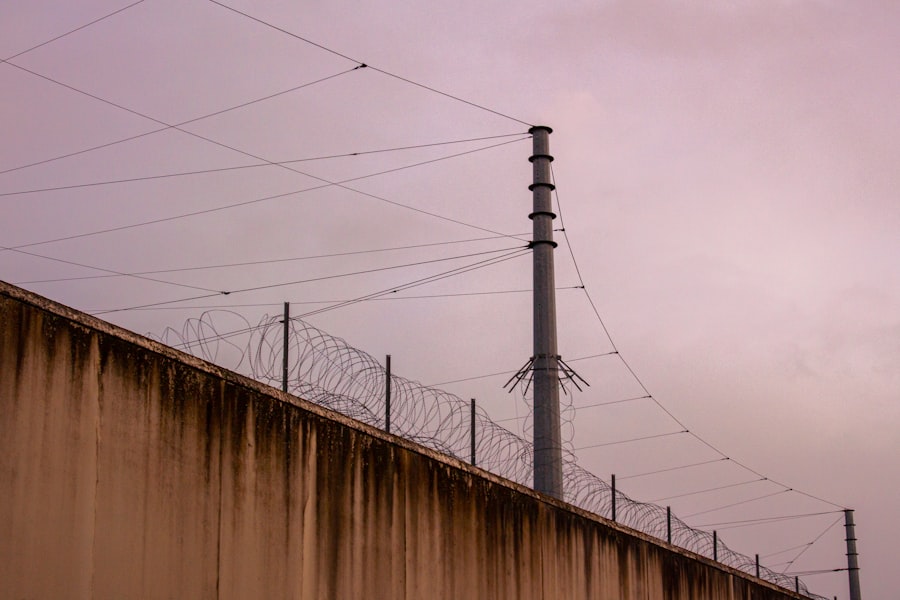Now Reading: The Epstein Scandal: Unraveling the Mystery
-
01
The Epstein Scandal: Unraveling the Mystery
The Epstein Scandal: Unraveling the Mystery

Jeffrey Epstein, a financier and convicted sex offender, led a life shrouded in mystery and controversy. Born on January 20, 1953, in Brooklyn, New York, Epstein’s early life was relatively unremarkable. He attended Lafayette High School and later went on to study at Cooper Union and New York University, although he never completed his degree.
His career began in the finance sector, where he quickly climbed the ranks, eventually establishing his own investment firm, J. Epstein & Co. His wealth and connections allowed him to mingle with the elite, but beneath this façade lay a dark and disturbing reality.
Epstein’s criminal activities came to light in the early 2000s when allegations of sexual abuse began to surface. He was accused of sexually exploiting underage girls, often luring them into his lavish homes under the guise of offering them modeling opportunities or financial assistance. In 2008, he struck a controversial plea deal in Florida that allowed him to serve just 13 months in a work-release program for soliciting prostitution from a minor.
This lenient sentence raised eyebrows and sparked outrage among victims and advocates for justice, as it seemed to reflect a systemic failure to hold powerful individuals accountable for their actions.
Key Takeaways
- Jeffrey Epstein was a wealthy financier and convicted sex offender who was accused of running a sex trafficking ring involving underage girls.
- Epstein’s enablers included his former girlfriend Ghislaine Maxwell, who allegedly recruited and groomed young girls for him, as well as his employees and associates who facilitated his illegal activities.
- Survivors of Epstein’s abuse have bravely spoken out, shedding light on the trauma they endured and seeking justice for the crimes committed against them.
- The legal battle surrounding Epstein’s plea deal and the controversial role of former U.S. Secretary of Labor, Alexander Acosta, led to public outrage and Acosta’s resignation.
- The mysterious circumstances surrounding Epstein’s death in prison have sparked speculation and conspiracy theories, with questions about whether it was suicide or foul play.
The Enablers: Who Helped Epstein?
Epstein’s ability to operate with impunity for so long can be attributed to a network of enablers who facilitated his predatory behavior. These individuals included not only associates and employees but also influential figures who turned a blind eye to his actions. Many of Epstein’s victims reported that they were groomed by his staff, who helped him identify and manipulate vulnerable young women.
This culture of complicity created an environment where abuse could flourish unchecked. Among those who played significant roles in enabling Epstein were Ghislaine Maxwell, his close associate and confidante, and various high-profile individuals who frequented his social circles. Maxwell was often described as Epstein’s right-hand woman, helping him recruit and groom young girls for exploitation.
Her involvement in the operation has led to her own legal troubles, culminating in her conviction for sex trafficking in December 2021.
The Victims: Survivors Speak Out

The voices of Epstein’s victims have emerged as a powerful force in the ongoing narrative surrounding his crimes. Many survivors have bravely come forward to share their harrowing experiences, shedding light on the psychological and emotional toll of their abuse. These testimonies reveal a pattern of manipulation, coercion, and exploitation that characterized Epstein’s predatory behavior.
Survivors have described how they were lured into Epstein’s world with promises of wealth and opportunity, only to find themselves trapped in a cycle of abuse. The trauma inflicted upon these individuals has lasting effects, often leading to mental health issues such as anxiety, depression, and post-traumatic stress disorder (PTSD).
The Legal Battle: Epstein’s Plea Deal and Acosta’s Resignation
| Key Points | Details |
|---|---|
| Epstein’s Plea Deal | Controversial non-prosecution agreement in 2008 |
| Acosta’s Resignation | July 2019 resignation as US Secretary of Labor |
| Public Outcry | Widespread criticism of handling of Epstein case |
| Legal Repercussions | Ongoing investigations and lawsuits related to Epstein’s case |
The legal proceedings surrounding Epstein’s case have been fraught with controversy and public outcry. In 2008, Epstein’s plea deal was negotiated by then-U.S. Attorney for the Southern District of Florida, Alexander Acosta.
This agreement allowed Epstein to plead guilty to lesser charges while avoiding federal prosecution for more serious offenses. The deal was criticized for its leniency and lack of transparency, raising questions about the motivations behind it. Acosta’s involvement in the case ultimately led to his resignation as Secretary of Labor in 2019 after renewed scrutiny of the plea deal surfaced following Epstein’s arrest on federal charges of sex trafficking.
The backlash against Acosta highlighted the systemic issues within the justice system that often protect powerful individuals at the expense of victims seeking justice. The fallout from this case has prompted calls for reform in how sexual abuse cases are handled, particularly when they involve high-profile figures.
The Mysterious Death: Suicide or Foul Play?
Epstein’s death on August 10, 2019, while awaiting trial in a Manhattan jail, has been surrounded by controversy and speculation. Officially ruled a suicide by hanging, many have questioned the circumstances surrounding his death, leading to rampant conspiracy theories suggesting foul play. The timing of his death—just weeks after being arrested on serious charges—has fueled suspicions that he may have been silenced to protect powerful individuals implicated in his crimes.
The inconsistencies in the jail’s protocols on the night of his death have further fueled speculation. Epstein was reportedly taken off suicide watch shortly before his death despite having previously expressed suicidal thoughts. Additionally, malfunctioning cameras and lapses in guard supervision have raised eyebrows about the adequacy of security measures in place at the facility.
The ambiguity surrounding his death continues to be a focal point for investigators and conspiracy theorists alike.
The Ghislaine Maxwell Connection

Ghislaine Maxwell’s connection to Jeffrey Epstein is one of the most scrutinized aspects of this case. As a British socialite and former girlfriend of Epstein, Maxwell played a pivotal role in facilitating his criminal activities. She was accused of recruiting young girls for Epstein and grooming them for exploitation, often using her social status to gain their trust.
Maxwell’s trial in late 2021 brought renewed attention to her involvement in Epstein’s operations. Prosecutors presented evidence that she had not only aided Epstein but had also participated in some instances of abuse herself. Her conviction on multiple counts related to sex trafficking underscored the extent of her complicity and raised questions about how many others may have been involved in enabling Epstein’s predatory behavior.
The High-Profile Connections: Prince Andrew and Other Influential Figures
Epstein’s connections to high-profile individuals have added another layer of complexity to this case. Among those implicated is Prince Andrew, Duke of York, who faced allegations from Virginia Giuffre that he had sexual encounters with her when she was a minor under Epstein’s influence. The fallout from these allegations has had significant repercussions for Prince Andrew, leading to public scrutiny and distancing from royal duties.
Other influential figures have also been linked to Epstein, including former U.S. Presidents Bill Clinton and Donald Trump, as well as prominent business leaders and celebrities. These associations have raised questions about the extent of Epstein’s network and whether others were complicit in or aware of his criminal activities.
The ongoing investigation into these connections continues to reveal new information that may shed light on the broader implications of Epstein’s actions.
The Continued Investigation: New Evidence and Revelations
The investigation into Jeffrey Epstein’s crimes is far from over. Following his death, authorities have continued to uncover new evidence related to his activities and those who may have aided him. This includes examining financial records, flight logs from his private jet, and testimonies from additional victims who have come forward since his arrest.
Recent revelations have indicated that Epstein maintained a vast network of contacts across various industries, suggesting that his influence extended beyond what was previously understood. Law enforcement agencies are actively pursuing leads that may connect other individuals to Epstein’s criminal enterprise, indicating that the full scope of his operations may still be unfolding.
The Impact on the #MeToo Movement
The revelations surrounding Jeffrey Epstein have had a profound impact on the #MeToo movement, which seeks to address sexual harassment and assault across various sectors. His case has highlighted systemic issues within society that allow powerful individuals to exploit vulnerable populations without facing consequences. The courage displayed by survivors in coming forward has empowered others to share their stories, fostering a culture of accountability.
The public outcry following Epstein’s arrest and subsequent revelations has prompted discussions about the need for reform in how sexual abuse cases are handled within legal systems worldwide. Advocates argue that addressing these systemic issues is crucial for preventing future abuse and ensuring that victims receive justice.
The Future of Epstein’s Estate and Victims’ Compensation
Following Epstein’s death, questions arose regarding the future of his estate and how it would be managed. His estate is estimated to be worth hundreds of millions of dollars, raising concerns about how funds would be allocated to compensate victims who suffered due to his actions. A compensation fund was established to provide financial restitution for survivors who came forward with claims against him.
The administration of Epstein’s estate has been complicated by ongoing legal battles among heirs and creditors, further delaying compensation for victims seeking justice. Advocates continue to push for transparency in how funds are distributed and emphasize the importance of prioritizing victim compensation over other financial interests.
Lessons Learned: Preventing Future Abuse and Exploitation
The case of Jeffrey Epstein serves as a stark reminder of the need for systemic change in how society addresses issues related to sexual abuse and exploitation. Key lessons learned from this case include the importance of listening to survivors’ voices, holding powerful individuals accountable for their actions, and implementing reforms within legal systems that prioritize victim rights. Preventative measures must also be established within institutions—such as schools, workplaces, and social organizations—to create safe environments where individuals feel empowered to report abuse without fear of retaliation or disbelief.
Education on consent and healthy relationships should be prioritized at all levels to foster a culture that respects boundaries and protects vulnerable populations from exploitation. In summary, Jeffrey Epstein’s life was marked by heinous crimes that exposed deep-rooted issues within society regarding power dynamics and sexual exploitation. His network of enablers facilitated years of abuse while survivors bravely spoke out against their tormentor.
Legal battles surrounding his plea deal and subsequent death raised questions about accountability within the justice system. The connections he maintained with influential figures further complicated the narrative while ongoing investigations continue to reveal new evidence. Ultimately, this case has had significant implications for movements advocating against sexual violence while highlighting the urgent need for systemic reform aimed at preventing future abuse.
There have been numerous conspiracy theories surrounding the death of Jeffrey Epstein, with many speculating that he did not commit suicide as officially reported. Some believe that powerful figures were involved in his demise to prevent him from revealing damaging information. For more information on high-profile scandals and cover-ups, check out this article on what Amazon stock will look like in 2025.
FAQs
Who is Epstein?
Epstein refers to Jeffrey Epstein, a wealthy financier and convicted sex offender who was known for his connections to powerful individuals and allegations of sex trafficking.
What is Epstein known for?
Epstein is known for his wealth, connections to influential people, and his involvement in a high-profile sex trafficking scandal. He was also known for his lavish lifestyle and philanthropic activities.
What was Epstein convicted of?
Epstein was convicted of soliciting an underage girl for prostitution in 2008. He served 13 months in jail as part of a plea deal, which has been widely criticized.
What is the controversy surrounding Epstein?
The controversy surrounding Epstein centers on his alleged sex trafficking operation, which involved the trafficking of underage girls for the purpose of sexual exploitation. There are also allegations of his connections to powerful individuals and potential efforts to cover up his crimes.
What happened to Epstein?
Epstein was arrested in July 2019 on federal charges of sex trafficking minors in Florida and New York. He died in his jail cell in August 2019, with the official cause of death being ruled as suicide.
What is the impact of Epstein’s case?
Epstein’s case has sparked widespread outrage and raised questions about the handling of sex trafficking cases, the influence of wealth and power in the legal system, and the accountability of those involved in such crimes. It has also led to investigations into his associates and calls for justice for his victims.












